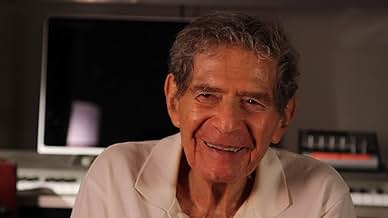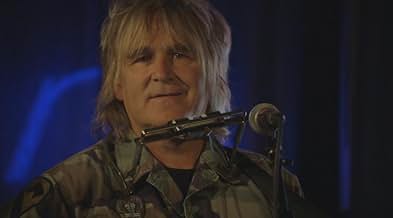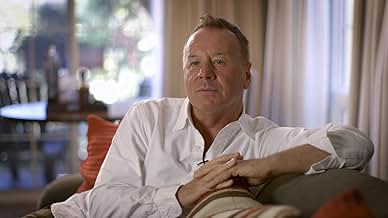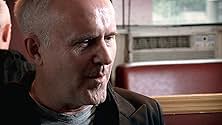In 1982, a small radio station battles to bring the New Wave to America.In 1982, a small radio station battles to bring the New Wave to America.In 1982, a small radio station battles to bring the New Wave to America.
M. King Adkins
- Self
- (as Dr. M. King Adkins)
Pete Byrne
- Self - Lead Singer, Naked Eyes
- (as Peter Byrne)
- Director
- Writer
- All cast & crew
- Production, box office & more at IMDbPro
7.6425
1
2
3
4
5
6
7
8
9
10
Featured reviews
Awesome Movie, Awesome Music
For anyone over 40 this movie will bring them back to a time when new wave was hitting the US. It is the story of the radio station in NY that brought the music here first and played over 1500 new wave artists in its short time on the air. The movie tells the really interesting story of life at the radio station when all these acts were young and unknown - so many to go on to be mainstays on 80's radio. But at the time for me and so many it was a revelation to hear this music.
Great interviews with the artists and producers. So much great music and live footage in the movie. You are transported back to 1982 and the movie brings back that fresh feeling of hearing things for the first time, along with great interviews that tell us what the artists were thinking.
Instant classic!
Loved It!
In 1982 I was 18 and a year out of high school. It was amazing to here about the clubs I used to frequent, the artists that started out of Long Island and that even thought at the time I didn't know it, and I'm sure none of us did, WHAT an impact it really was to the music world and how proud I am that I was part of that.... Definitely a film to keep in my collection. Thanks for the Memories.
The Soundtrack of my Life
The music that moved me during the best years of my life. The insight and history of the performers and the songs had me spellbound.
Recommend this to anyone who loves 80s music
I got to see Dare to Be Different at a film festival and it was a blast! The sound mix was so good and the music selection so right on that I was dancing in my seat the entire time. It felt as if the entire audience was having a shared musical experience of 80s music and memories. Even though this is the music of my youth, I didn't know that much about the artists who created the 80s sound. It was very engaging to hear artists, now in their 50s and 60s, riff about their early work, their inspirations, and how the era influenced their music and message. The story of the small, rogue, radio station that played this music was an entertaining subplot. Hearing the DJs remember moments when famous artists "hung out" at WLIR or when they literally had to go to the airport to pick up record imports gave the documentary authenticity. I recommend this documentary anyone who loves 80s music.
Factually incorrect
I know for sure that 2 college radio stations in the Boston area, WERS and WMBR, and 2 commercial stations - WBCN in Boston and KROQ in Los Angeles - were among various American radio stations that turned people on to many of the bands that WLIR claimed to have been "the first" to, and by several years. I was annoyed by how DJ's and staff in the film patted themselves on the back in taking such credit. WLIR changed format in 1982. U2's first album was released in the US 2 years earlier and was played at all the stations cited. That's just one example. Sure, WLIR helped expose the music which generated album sales, but don't claim something that is not true. It diminishes the legitimacy of the documentary. I cringed watching it. The listeners and staff obviously dug the commercial alternative format and the filmmaker shows that. I did enjoy seeing musicians that I liked remembering those days. Overall, great that 'LIR dared to be different but don't make false claims that you were the first, etc. And nobody likes a braggart anyway.
Did you know
- Quotes
Michael Pagnotta: It was a movement in technology. And the difference between what Vince Clarke or Martin Gore, as opposed to what Keith Emerson could do, was completely different. The battery of keyboards that Wakeman and Emerson had to have on stage, I was the biggest Yes and the biggest ELP fan, so I love the sound of the Moog synthesizer. But, that was not a portable situation.
- SoundtracksMy Way
(Comme d'Habitude)
Music by Claude François and Jacques Revaux
French lyrics by Gilles Thibaut
English lyrics by Paul Anka
Performed by Sid Vicious
Details
- Release date
- Country of origin
- Official site
- Language
- Also known as
- Посмей быть другим
- Filming locations
- Los Angeles, California, USA(on location)
- Production companies
- See more company credits at IMDbPro
- Runtime
- 1h 35m(95 min)
- Color
Contribute to this page
Suggest an edit or add missing content

























